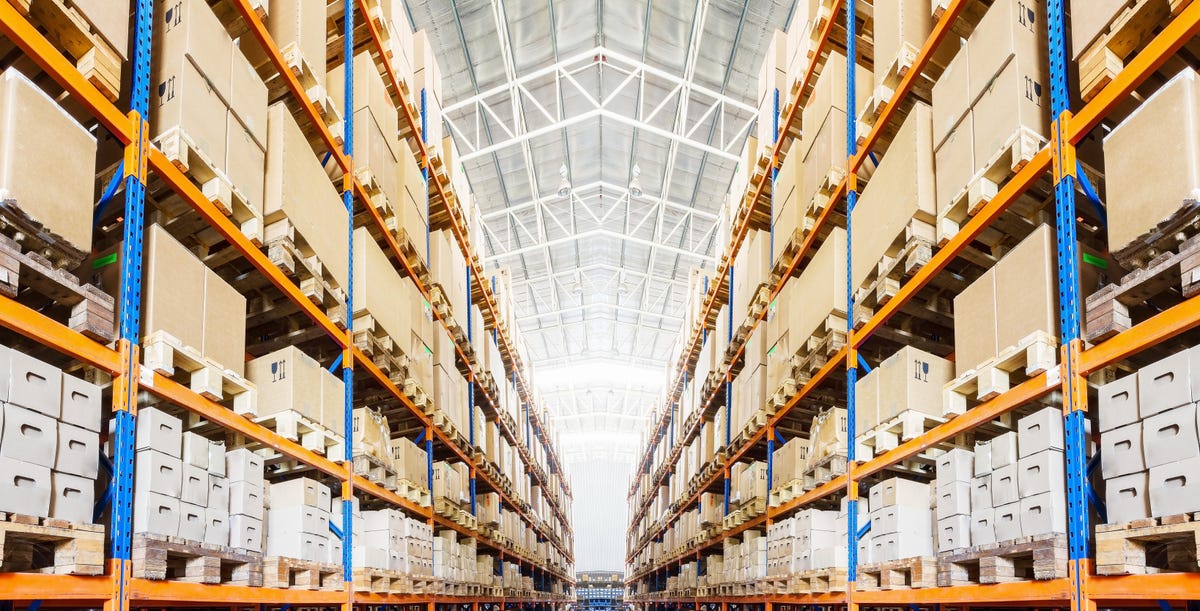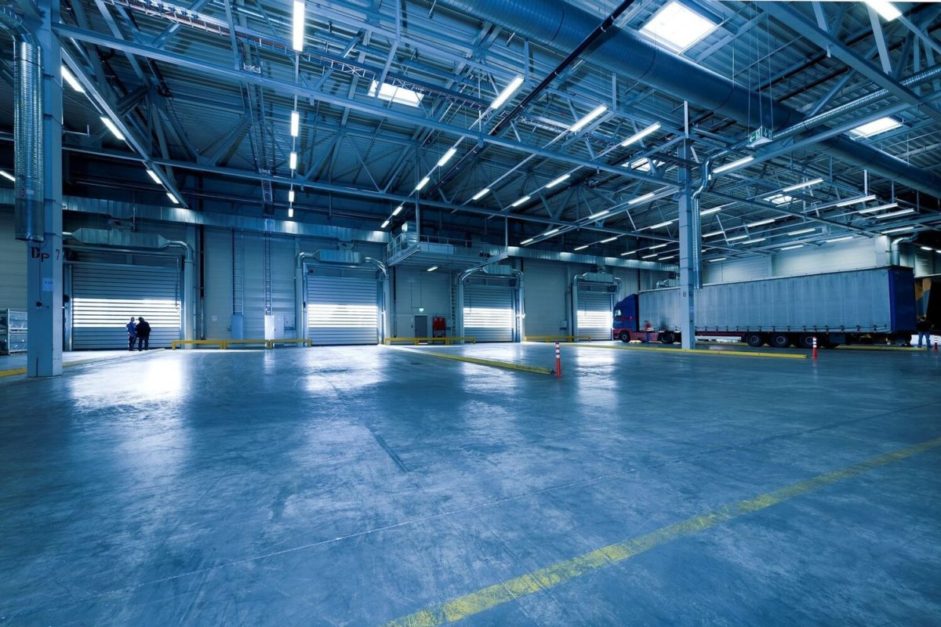The term industrial real estate is a broad term which covers manufacturing, production, research and development, storage, and distribution facilities. Despite its importance, the industrial real estate sector gets overshadowed by some other popular ones like residential, commercial, and retail real estate.
However, its vital role in worldwide commerce should never be overlooked. To properly understand what industrial real estate is and how it impacts world commerce, Graana.com has come up with a blog that gives you a thorough understanding of the topic.
Industrial Real Estate in a Nutshell

In layman’s terms, industrial real estate can be defined as the piece of land where all the industrial activities take place. Those industrial activities include production, manufacturing, assembly, warehousing, research, storage, and distribution.
In most cities, there are a few particular areas chosen for industrial properties marked on a zoning map which indicates where these places can be built and operated.
There are more particular zoning ordinances which specify where industrial activities can and can not be conducted.
There are multiple aspects to industrial real estate and it is essential to understand the differences between them in order to have a deeper understanding of the projects.
Types of Industrial Properties
There are various types of industrial real estate properties. Fundamentally, any space that prefers function over appearance can be categorised as industrial real estate.
Following are the three main categories of the sector and their uses.
- Manufacturing Facilities
- Industrial Building for Storage and Distribution
- Flex Space
Manufacturing Facilities
One of the uses of industrial real estate properties includes its use as a manufacturing facility. Be it any kind of product, a manufacturing space is required for it to come into existence.
Industrial Building for Storage and Distribution
Once manufacturers have produced a product, storage space is required for storing the bulk, hence the need for storage spaces comes into being.
Storage and distribution spaces make up a substantial market in industrial real estate. In addition to that, a lot of companies need a base where they can store their overstock, equipment, vehicles, etc.
Flex Space
An industrial building in which some parts are converted into an office space is called a flex space. The offices make up about 1/3 of the building, while the rest of it remains a multipurpose area.
The idea behind the concept of such buildings was to provide companies with a space to perform heavy work right beside their offices.
Pros and Cons of Investing in Industrial Buildings

Making any sort of investment comes with pros and cons. Before financing an industrial project, it is worth noting all the risk factors and advantages that come along with it.
Advantages
Following are some of the advantages of investing in industrial buildings.
- Long-Term Leases
- High Rental Income
- Low Maintenance
- Minimal Outgoings
- Stability
- Growing Market
Long-Term Leases
Industrial leases typically stay for a fairly long period. Long-term leases are quite advantageous for investors as they get so much time on their hands to be able to generate huge returns on the initial amount they invested.
Not being able to pay off the lease is a nightmare for an investor, so investing in industrial buildings can be a safe option for them.
Low Maintenance
Lots of buildings require very little total land and construction as their primary purpose is to store and stock items. This is the reason their structures are less complex and simple in nature. This ultimately saves their maintenance costs as well.
Moreover, industrial real estate buildings work behind the scenes where all the production and manufacturing procedures go on, which is why they do not require much decoration and embellishments.
Minimal Outgoings
In many industrial real estate building agreements which are on net lease, tenants are required to pay most of the cost, which would be the owner’s headache otherwise.
Triple net leases are the most beneficial for the owners of the property as they successfully free them from any sort of monetary responsibility.
These kinds of leases are particularly used for commercial property agreements, however, they are also applicable in industrial real estate.
Stability
There is always a certain level of risk involved in any kind of investment, yet industrial real estate is one industry that comes with comparatively low risk and can be considered stable.
Among all types of buildings, industrial real estate buildings are known to retain their value even in cases of recession, as these types of spaces are always in demand.
Growing Market
The leaping progress of online marketplaces has given a boost to consumerism, hence increasing the number of people shopping online.
With more shopping comes the need for more industrial real estate. This rise in the demand for more industrial real estate buildings has propelled the need for such buildings, offering more chances for investors to invest in industrial real estate.
Disadvantages
Here are the disadvantages of investing in industrial buildings.
- Risk of Vacancy
- High-Interest Rates on Bank Loans
- Chance Of Becoming Obsolete
- Expert Assistance May be Required
Risk of Vacancy
Even though you can use industrial property for various purposes, the risk of vacancy is always there. If the investor is unable to find a good company that requires space to perform industrial operations, they will be left with a property that has no value to offer.
Moreover, it can be quite a tedious task to find a new tenant in case of a sudden shutdown of the company or the end of the contract.
High-Interest Rates on Bank Loans
Another drawback of industrial real estate is that they often come with high rates of interest on the loans taken from banks. Sometimes, the interest rates are up to 30%, which is fairly high.
In addition to that, banks see industrial properties as a greater risk as compared to residential ones, which is reflected in their loan terms.
Chance Becoming Obsolete
The industrial market keeps evolving, and new rules and regulations keep on dropping constantly. If your property is unable to keep up with the new trends of the markets, it will go obsolete and unusable.
For example, if the roof is low and unable to accommodate new installations, or it does not have the capacity to hold new machines and products, the property will essentially become useless.
Another cause of obsolescence can be the developments around the area where the property is located. Maybe a new road or a building is making your property less preferable to the companies in the market.
The key to avoiding this hassle is to choose your industrial property in a suitable location, with room for adaptability and flexibility. If you go for cheaper buildings, they will cost you less, but you will have fewer choices to make changes to them.
Expert Assistance May be Required
Unlike other property investments that we make, investing in industrial real estate is not a simple process. You will need professional help to come up with a nice and working investment strategy to sail smoothly through the process of investing with the least risk involved.
Lots of people choose to make passive investments, which means they just buy the property but do not manage it themselves. The maintenance and safety of industrial property is quite difficult, so property managers are hired to offer their professional guidance in the matter.
However, they are going to charge you for their services, and that will cut down on your income.
This was all about industrial real estate, its types, pros and cons. This ever-growing sector of real estate won’t be going down in the coming years, making it a good investment opportunity.
For more information, visit Graana blog.




